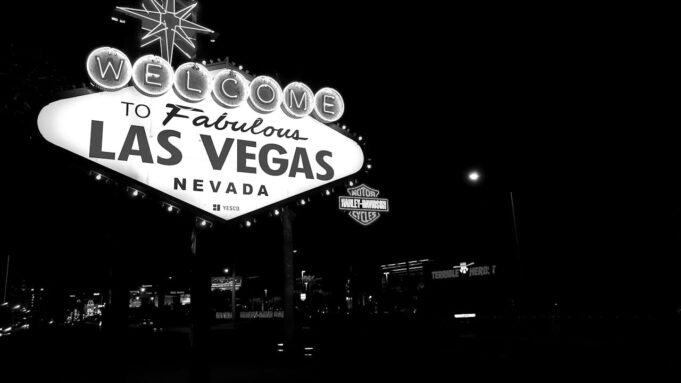Las Vegas is globally famous for its dazzling lights, luxurious casinos, and non-stop entertainment. For many, it’s a dream destination for vacations, bachelor parties, and extravagant getaways. But what about those who call Las Vegas home? Beneath the glitz and glamour lies a city with its own set of challenges. Living in Las Vegas isn’t always as shiny as it seems. Here are the 10 worst things about living in Las Vegas that you might not know about.
1. Unbearable Summer Heat
One of the biggest complaints about living in Las Vegas is the extreme summer heat. With temperatures regularly exceeding 110°F (43°C) during the summer months, the desert sun can be relentless. The oppressive heat makes it difficult to enjoy outdoor activities, and even a short walk from your car to the store can leave you feeling drained. While air conditioning is a saving grace, the high cost of electricity during the summer months can put a strain on your budget.
How It Affects Daily Life:
- Outdoor activities are limited from June to September.
- Increased risk of dehydration and heat stroke.
- Expensive cooling bills due to reliance on air conditioning.
Read: Weather in Las Vegas in February
2. Tourist Overload
Living in one of the world’s top tourist destinations means constantly dealing with an influx of visitors. The Las Vegas Strip, while an exciting place to visit occasionally, becomes a major headache for locals. Tourists clog the streets, making traffic unbearable, and the noise levels can be overwhelming. For those who live and work near the Strip, navigating around tourists can feel like an endless hassle.
Challenges Faced by Locals:
- Congested streets and long commutes.
- Crowded public spaces and restaurants.
- Lack of peace and quiet, especially during peak tourist seasons.
3. High Cost of Living
Contrary to popular belief, living in Las Vegas is not cheap. While housing costs may be more affordable compared to cities like Los Angeles or New York, they have been steadily rising. The cost of utilities, transportation, and healthcare in Las Vegas is also higher than in many other U.S. cities. Additionally, because of the city’s isolation in the desert, goods and services often come at a premium.
Key Expenses:
- Rising rent and home prices, especially in desirable areas.
- Increased utility bills due to extreme weather conditions.
- Higher-than-average transportation costs.
4. Limited Job Opportunities Outside of Tourism
Las Vegas’ economy is heavily dependent on the tourism and hospitality industries. While there are plenty of jobs in hotels, casinos, and restaurants, the opportunities for other career paths are limited. This can make it difficult for professionals in industries like technology, healthcare, or education to find good-paying jobs. The city’s dependence on tourism also means that economic downturns or global events like pandemics can severely impact job stability.
Career Limitations:
- Few opportunities for high-paying jobs outside hospitality and entertainment.
- High competition for non-tourism jobs.
- Economic instability linked to tourism trends.
Read: Phoenix to Las Vegas Road Trip Adventure
5. Lack of Green Spaces
As a desert city, Las Vegas is not known for its abundance of natural greenery. Parks and green spaces are few and far between, making it challenging for those who enjoy outdoor activities like hiking, biking, or simply relaxing in nature. While there are some beautiful natural attractions nearby, like Red Rock Canyon and Mount Charleston, they require a drive out of the city.
Impact on Lifestyle:
- Limited options for local parks and recreational areas.
- Need to travel far for nature-related activities.
- Lack of greenery contributes to a dry, dusty atmosphere.
6. Gambling Culture Everywhere
Living in Las Vegas means you are constantly surrounded by gambling. While it might seem exciting at first, the omnipresence of casinos and slot machines can become overwhelming. From grocery stores to gas stations, it’s hard to escape the sights and sounds of gambling. For some, this can lead to temptation or addiction, while for others, it simply becomes an annoying part of daily life.
Negative Effects:
- Temptation for those prone to gambling addiction.
- Constant noise and lights from slot machines.
- Family-friendly activities often intertwined with gambling venues.
7. Transient Population
Las Vegas is known for having a highly transient population, with many people moving in and out of the city regularly. This can make it difficult to form lasting relationships or build a strong sense of community. The constant turnover of residents can create a feeling of instability, and for those seeking long-term friendships or neighborhood connections, it can be frustrating.
Community Challenges:
- Difficulty forming long-term relationships.
- Lack of stable, close-knit communities.
- High rate of people moving in and out of neighborhoods.
8. Poor Public Transportation
Public transportation in Las Vegas leaves much to be desired. While the city does have a bus system, it is often unreliable and limited in its reach. For many residents, owning a car is a necessity, especially if you live outside of the central areas. Traffic congestion, especially near the Strip, can also make driving a stressful experience.
Transportation Issues:
- Limited and inefficient public transportation options.
- Heavy reliance on personal vehicles.
- Traffic congestion and lack of parking in busy areas.
9. Crime Rates
Like many major cities, Las Vegas has its share of crime. While the Strip is relatively safe due to heavy police presence, certain neighborhoods in the city experience higher crime rates. Property crimes such as burglary and car theft are more common than violent crimes, but it’s still a concern for residents. The visibility of crime in some areas can make people feel unsafe, particularly if they live or work in less secure neighborhoods.
Safety Concerns:
- Higher-than-average property crime rates.
- Some neighborhoods have a reputation for safety issues.
- Safety on and off the Strip can vary widely.
Read: How Far is Reno From Las Vegas?
10. Isolation from Other Major Cities
Las Vegas is situated in the middle of the Mojave Desert, making it quite isolated from other major cities. The closest big city, Los Angeles, is about 270 miles away, requiring a four-hour drive. For those who enjoy weekend getaways or visiting family and friends in other cities, this isolation can feel limiting. It also means that traveling for work or leisure can become time-consuming and expensive.
Isolation Challenges:
- Limited options for nearby road trips.
- Expensive and time-consuming air travel to other major cities.
- Feelings of isolation due to the remote location.
FAQs About Living in Las Vegas
1. Is Las Vegas a good place to raise a family?
While Las Vegas has family-friendly areas, the gambling culture, transient population, and limited green spaces can be challenges for families. However, there are good schools and family-oriented suburbs away from the Strip.
2. Is the cost of living in Las Vegas affordable?
While Las Vegas used to be considered affordable, the cost of living has been steadily rising, particularly housing prices. Due to the extreme weather conditions, utilities can also be expensive.
3. How do locals deal with the heat?
Most locals rely on air conditioning and adjust their schedules to avoid being outside during the hottest parts of the day. Many activities are centered around indoor, air-conditioned spaces.
4. Are there job opportunities outside of tourism?
Job opportunities outside of the tourism and hospitality industries are limited in Las Vegas, though there is growth in sectors like healthcare, technology, and logistics.
5. Is it safe to live in Las Vegas?
Crime rates vary by neighborhood. While the Strip is heavily policed, some residential areas have higher property crime rates. It’s important to research neighborhoods carefully before moving.
6. How is traffic in Las Vegas?
Traffic can be heavy, especially near the Strip and during peak tourist seasons. Public transportation is limited, so most locals rely on their cars to get around.
Conclusion
Living in Las Vegas offers an exciting lifestyle, but it comes with its own set of unique challenges. From the scorching summer heat to the city’s dependence on tourism, Las Vegas isn’t for everyone. Understanding the worst aspects of life in this desert oasis can help potential residents weigh the pros and cons before making the move.















